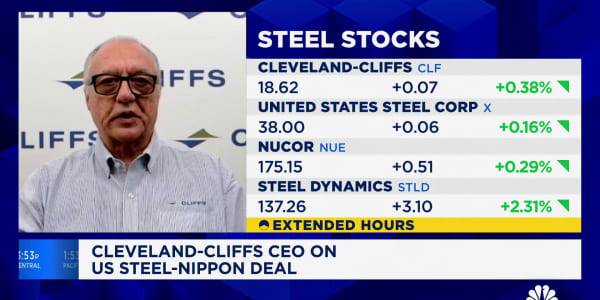Banking analyst Dick Bove, who a month ago rocked the markets with his call to sell everything in sight, has changed gears.
Now, Bove is advising to buy.
With both hands.
“In the last few days I started looking at valuations of these companies and was just shocked by what I saw,” said the Rochdale Securities vice president of equity research. “These stocks are selling in many cases at lower valuations than the first quarter of 2009, which was supposedly the bottom.”
So why the change of heart?
In part, it stems from the very irrational market behavior he cited when first delivering his sell admonition in late July.
The same investors who are selling stocks in banks are taking the proceeds and sticking them right back into the very banks whose stocks they are selling.
In the past two weeks, that has come to the tune of $200 billion in new deposits for banks whose capital continues to be in question as the economy slides, rates stay near zero and capital requirements rise.
Bank of America , for instance, is sitting on $140 billion in cash, more than its total tangible book value, yet its market cap is $65 billion. The company’s stock has slid more than 30 percent in the past month.
“What the market is saying is that this thing isn’t even worth its liquidation value when its liquidation value is in cash,” Bove said in an interview.
Bank of New York Mellon is in a similar situation and “you can play the same game at Citigroup , Northern Trust , State Street ,” he said.
“What you have at the moment is the market making the assessment that these companies aren’t even worth their liquidation value, if their liquidation value is 100 percent cash,” he said. “You have to ask yourself what is going on.”
Bove said the more than 20 percent slide since he made his sell call—effectively a trip into bear market territory for the sector—is enough.
“The stocks came down 22 percent. So then you have to say, what are these stocks worth now?’” he said. “Is there any example of a market collapse when there’s $200 billion that flows into the banking system in a two-week period? Can the economy really become unstuck when it’s drowning in excess liquidity? It doesn’t make sense.”
Questions? Comments? Email us at
Follow Jeff @ twitter.com/JeffCoxCNBCcom
Follow NetNet on Twitter @ twitter.com/CNBCnetnet
Facebook us @ www.facebook.com/NetNetCNBC






